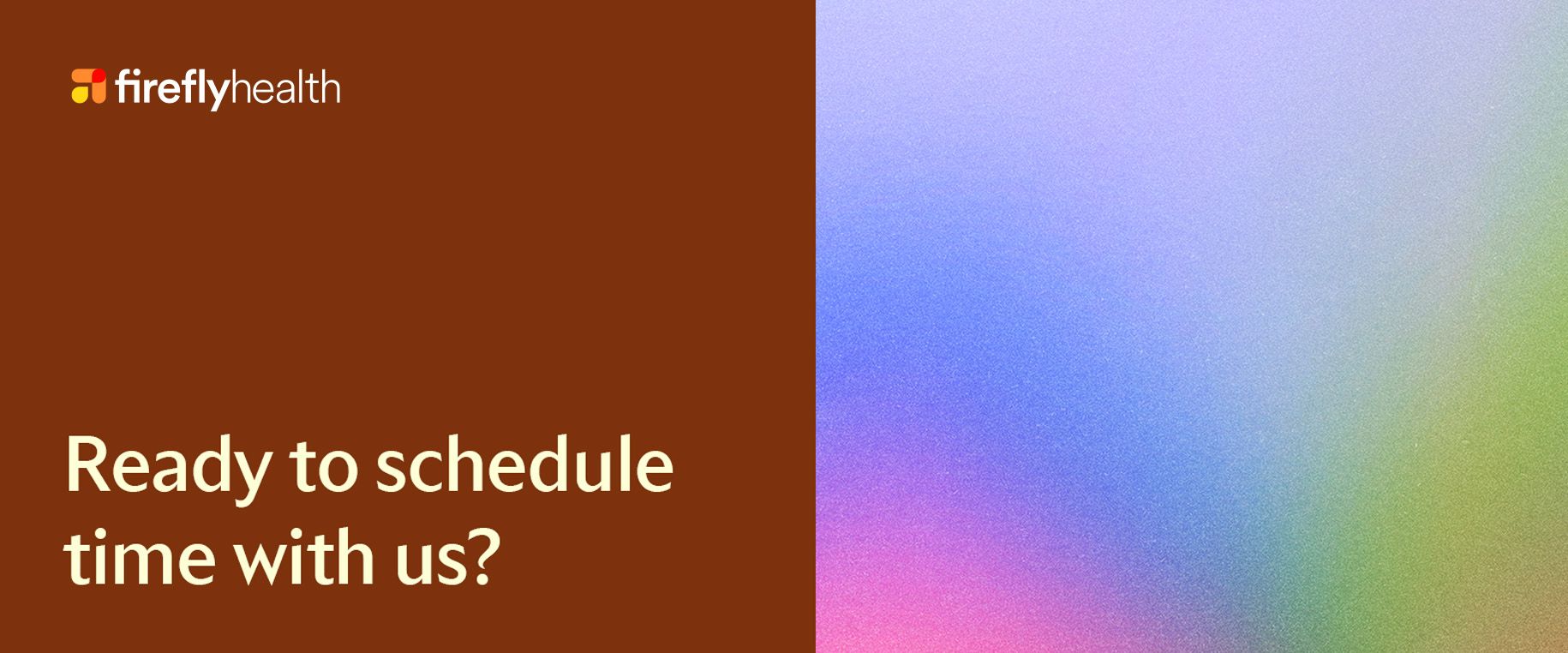Clinical guidance
Understanding and managing depression
Your Guide to Understanding Depression
Published May 14, 2025
Clinical guidance
Understanding and managing depression
Published May 14, 2025
Depression is a common mood disorder in which people feel persistent sadness and loss of interest or pleasure. It often comes with changes in sleep, appetite, energy, concentration, and feelings of self-worth. Depression has a big impact on daily life and is more than just feeling "down" or sad.
Depression is typically caused by a mix of these factors:
These factors affect everyone differently.

You might be depressed if for over two weeks your daily life has been seriously and continuously impacted by one or more of these symptoms:

Reach out to your Firefly care team so you can get assessed. Even if you have only the milder symptoms, we can still help. It’s especially important to seek help if your symptoms don’t improve, get worse, or affect your ability to live your life.
Your care team will help you figure out a plan for managing your depression.
Managing depression often works best with a mix of strategies:
Keep in mind: Depression treatment looks different for every person, and it often takes time to notice the effects.
For a deep dive on the different types of depression, check out this resource. You can also use these worksheets to learn and track strategies for managing your mood.
Please call 911 or 988 (Suicide & Crisis Lifeline) or go to the nearest emergency room right away.
